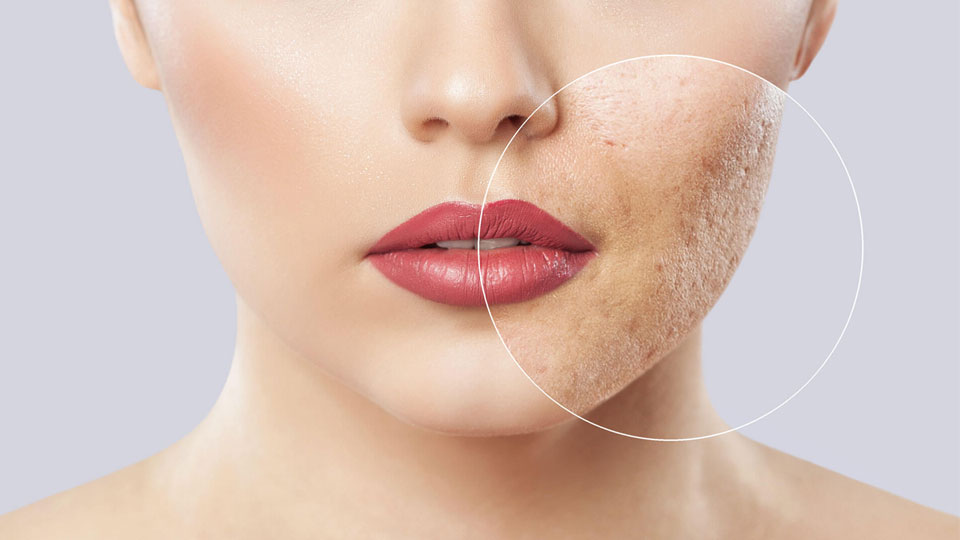Skin Scar Removal Treatment in Mumbai

What are Scars?
A scar is a mark left on the skin or within body tissues after the healing of a wound, burn, surgical incision, or other injury. It's a natural part of the healing process that occurs when the deeper or inner layers of the skin repair and regenerate. Scars can vary in appearance, texture, and size depending on factors such as the depth and severity of the injury, skin type, and individual healing process.
Causes of Scars
- Injuries: Accidents, cuts, abrasions, and wounds can lead to scars. The body responds by producing collagen, a fibrous protein, to repair the damaged skin.
- Surgical Procedures: Surgeries, including cosmetic surgeries, may result in scars. Proper wound care post-surgery is crucial for minimizing scar formation.
- Burns: First to third-degree burns can cause scarring, with the severity of scarring often corresponding to the depth of the burn.
- Acne: Severe acne, particularly cystic acne, can leave behind scars due to inflammation and tissue damage.
- Skin Conditions: Conditions like psoriasis, eczema, and chickenpox can lead to scarring if the affected areas are scratched excessively.
Symptoms of Scars
The symptoms of scars can vary depending on their type and severity. Common symptoms include:
- Discoloration: Scars may appear lighter or darker than the surrounding skin, especially in the initial stages.
- Texture Changes: Scars can be raised (hypertrophic or keloid) or sunken (atrophic), affecting the skin's texture.
- Itching: Some scars may cause itching, particularly during the healing process.
- Pain or Sensitivity: Raised scars like keloids can be tender or painful to the touch.
- Limited Movement: Scars over joints or areas of movement may restrict movement if they are tight or rigid.
Prevention of Scars
- Proper Wound Care: Cleanse wounds gently with mild soap and water, and apply antibiotic creams to reduce infection risk.
- Keep Wounds Moisturized: Use moisturizers or ointments recommended by healthcare professionals to keep wounds moist, which can aid in scar prevention.
- Avoid Picking or Scratching: Refrain from picking at scabs or scratching healing wounds to prevent further damage and potential scarring.
- Sun Protection: Protect scars from sun exposure by using sunscreen with a high SPF and wearing protective clothing.
- Early Treatment: Seek medical attention promptly for deep wounds, burns, or injuries that may require professional intervention to minimize scarring.
When to See a Doctor
While many scars fade and improve over time, certain situations warrant medical evaluation and treatment:
- If a scar continues to cause pain or discomfort, especially if it affects mobility or daily activities.
- Any sudden changes in a scar's color, size, or texture should be examined by a healthcare provider.
- Signs of infection like redness, warmth, swelling, pus, or increased pain at the scar site require immediate medical attention.
- Raised scars that are growing or causing issues should be examined by a dermatologist or plastic surgeon.
- If a scar significantly impacts self-esteem, confidence, or mental well-being, speaking with a healthcare professional or counselor can be beneficial.
FAQs
While some scars can be significantly improved or minimized with treatments like laser therapy, microneedling, or surgical revision, complete removal of scars may not always be possible.
Effective scar treatments include silicone sheets or gels, steroid injections, laser therapy, dermabrasion, chemical peels, and surgical revision for certain types of scars.
The time it takes for scars to fade varies widely depending on factors such as scar type, size, location, and individual healing response. Some scars may fade within a few months, while others may take years to improve.
Over-the-counter scar creams may help improve the appearance of scars, but their effectiveness varies.
While scar treatments can improve the appearance of scars, there is a possibility of recurrence, especially with keloid or hypertrophic scars. Follow-up care and maintenance treatments may be necessary to manage recurrent scars.
Proper wound care, avoiding smoking, following post-operative instructions, and using scar prevention products recommended by healthcare providers can help minimize scarring after surgery.
Restore skin's flawless appearance with the best Skin Scar Removal Treatment in Mumbai at Alana Skin, Hair & Laser Clinic led by Dr. Sweta Sinha at Ghatkopar.
